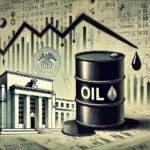The South Korean won plunged to a 15-year low on Thursday, pressured by heightened risk aversion following the U.S. Federal Reserve’s cautious approach to further interest rate cuts and ongoing domestic political uncertainty.
In onshore trade as of 0234 GMT, the won stood at 1,449.9 per dollar, after opening at 1,453.0 per dollar, marking a 0.96% decline from the previous day and its weakest level since March 16, 2009.
While the U.S. Federal Reserve cut interest rates on Wednesday as anticipated, Chair Jerome Powell emphasized that additional rate reductions would depend on further progress in tackling persistently high inflation. This hawkish stance strengthened the dollar, exacerbating downward pressure on the won, which was already reeling from domestic political turmoil. Earlier this month, President Yoon Suk Yeol’s brief imposition of martial law following his impeachment intensified political and economic instability.
Acknowledging the economic fallout from the December 3 martial law order, the Bank of Korea on Wednesday highlighted downside risks to its growth projections for this year and next.
The won has depreciated 3.9% against the dollar so far in December, marking its third consecutive month of losses. Year-to-date, it has fallen by 11%, making it the worst-performing emerging Asian currency in 2024 and on track for its steepest annual decline since 2008.
Ahead of the market opening, South Korea’s finance minister stated that the government and central bank are prepared to act decisively and swiftly to stabilize financial markets should volatility reach excessive levels.”Authorities appear to be defending the 1,450 level, making it challenging to short the won at this point,” a local currency trader commented.
To ease pressure on the currency, the financial regulator urged local banks on Thursday to adopt a more flexible approach to managing foreign exchange transactions and loans.
Meanwhile, the benchmark KOSPI index fell by 2% in the stock market as foreign investors offloaded local shares.





